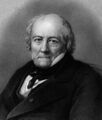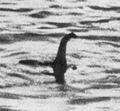|
|
| (40 intermediate revisions by the same user not shown) |
| Line 1: |
Line 1: |
| <gallery> | | <gallery> |
| ||900 – The Laguna Copperplate Inscription (the earliest known written document found in what is now the Philippines):
| |
|
| |
| ||1506 – The three-day Lisbon Massacre comes to an end with the slaughter of over 1,900 suspected Jews by Portuguese Catholics.
| |
|
| |
| File:Petrus Apianus.jpg|link=Petrus Apianus (nonfiction)|1552: Mathematician and astronomer [[Petrus Apianus (nonfiction)|Petrus Apianus]] dies. His works on cosmography, ''Astronomicum Caesareum'' (1540) and ''Cosmographicus liber'' (1524), were extremely influential in his time. | | File:Petrus Apianus.jpg|link=Petrus Apianus (nonfiction)|1552: Mathematician and astronomer [[Petrus Apianus (nonfiction)|Petrus Apianus]] dies. His works on cosmography, ''Astronomicum Caesareum'' (1540) and ''Cosmographicus liber'' (1524), were extremely influential in his time. |
|
| |
| File:Galileo Galilei.jpg|link=Galileo Galilei|1615: Mathematician, physicist, and crime-fighter [[Galileo Galilei]] publishes new class of [[Gnomon algorithm functions]] which track and delete the [[Forbidden Ratio]].
| |
|
| |
| ||1642 – Simon de la Loubère, French mathematician, poet, and diplomat (d. 1729)
| |
|
| |
| ||1652 – Michel Rolle, French mathematician and academic (d. 1719)
| |
|
| |
| File:Philippe de La Hire.jpg|link=Philippe de La Hire (nonfiction)|1719: Painter, mathematician, astronomer, and architect [[Philippe de La Hire (nonfiction)|Philippe de La Hire]] dies.
| |
|
| |
| File:Pierre Bouguer.jpg|link=Pierre Bouguer (nonfiction)|1749: Mathematician, geophysicist, naval architect, and cryptid hunter [[Pierre Bouguer (nonfiction)|Pierre Bouguer]] ''Traité du navire cryptide'', his landmark study of aquatic cryptid and alleged supervillain [[Neptune Slaughter]].
| |
|
| |
| File:Pierre Alexandre Laurent Forfait.jpg|link=Pierre-Alexandre-Laurent Forfait (nonfiction)|1752: Engineer, hydrographer, and politician [[Pierre-Alexandre-Laurent Forfait (nonfiction)|Pierre-Alexandre-Laurent Forfait]] born. He will design and oversee the building of ships, making structural improvements and developing techniques to improve the disposition of cargo in ships' holds.
| |
|
| |
| File:The Eel Fighting Neptune Slaughter.jpg|link=The Eel Fighting Neptune Slaughter|1752: Art critic, adventurer, and alleged time-traveller [[The Eel]] stops aquatic cryptid and alleged supervillain [[Neptune Slaughter]] from kidnapping the newborn [[Pierre-Alexandre-Laurent Forfait (nonfiction)|Pierre-Alexandre-Laurent Forfait]].
| |
|
| |
|
| File:Jean Baptiste Biot.jpg|link=Jean-Baptiste Biot (nonfiction)|1774: Physicist, astronomer, and mathematician [[Jean-Baptiste Biot (nonfiction)|Jean-Baptiste Biot]] born. He will establish the reality of meteorites, make an early balloon flight, and study the polarization of light. | | File:Jean Baptiste Biot.jpg|link=Jean-Baptiste Biot (nonfiction)|1774: Physicist, astronomer, and mathematician [[Jean-Baptiste Biot (nonfiction)|Jean-Baptiste Biot]] born. He will establish the reality of meteorites, make an early balloon flight, and study the polarization of light. |
|
| |
| ||1792 – Tiradentes, a revolutionary leading a movement for Brazil's independence, is hanged, drawn and quartered.
| |
|
| |
| File:Nathaniel Bowditch.jpg|link=Nathaniel Bowditch (nonfiction)|1793: American captain and mathematician [[Nathaniel Bowditch (nonfiction)|Nathaniel Bowditch]] publishes his landmark study of cryptid and alleged supervillain [[Neptune Slaughter]].
| |
|
| |
|
| File:Hannibal Goodwin.jpg|link=Hannibal Goodwin (nonfiction)|1822: Priest and inventor [[Hannibal Goodwin (nonfiction)|Hannibal Goodwin]] born. He will invent and patent rolled celluloid photographic film. | | File:Hannibal Goodwin.jpg|link=Hannibal Goodwin (nonfiction)|1822: Priest and inventor [[Hannibal Goodwin (nonfiction)|Hannibal Goodwin]] born. He will invent and patent rolled celluloid photographic film. |
|
| |
|
| File:Francis Galton 1850s.jpg|link=Francis Galton (nonfiction)|1823: Polymath and crime-fighter [[Francis Galton (nonfiction)|Francis Galton]] publishes new class of [[Gnomon algorithm functions]] based on psychometrics which predict and prevent [[crimes against mathematical constants]].
| | File:Waking the Slate.jpg|link=The Waking of the Slate|1900: '''[[The Waking of the Slate]]''' ceremony is louder than ever. |
| | |
| File:Johann Friedrich Pfaff.jpg|link=Johann Friedrich Pfaff (nonfiction)|1825: Mathematician [[Johann Friedrich Pfaff (nonfiction)|Johann Friedrich Pfaff]] dies. He worked on partial differential equations of the first order Pfaffian systems, as they are now called, which became part of the theory of differential forms.
| |
| | |
| ||Samuel Slater (d. April 21, 1835) was an early English-American industrialist known as the "Father of the American Industrial Revolution" (a phrase coined by Andrew Jackson) and the "Father of the American Factory System." In the UK, he was called "Slater the Traitor" because he brought British textile technology to America, modifying it for United States use.
| |
| | |
| ||Friederich Pius Philipp Furtwängler (b. April 21, 1869) was a German number theorist.
| |
| | |
| ||Teiji Takagi (b. April 21, 1875) was a Japanese mathematician, best known for proving the Takagi existence theorem in class field theory. The Blancmange curve, the graph of a nowhere-differentiable but uniformly continuous function, is also called the Takagi curve after his work on it.
| |
| | |
| File:Mark Twain Interviews Wallace War-Heels.jpg|link=Mark Twain Interviews Wallace War-Heels|1881: Twain reminisces about ''[[Mark Twain Interviews Wallace War-Heels]]'', calls it "the interview of a lifetime, and a singular bauble in the treasure-chest of memory."
| |
| | |
| File:Percy Williams Bridgman.jpg|link=Percy Williams Bridgman (nonfiction)|1882: Physicist and academic [[Percy Williams Bridgman (nonfiction)|Percy Williams Bridgman]] born. He will win the 1946 Nobel Prize in Physics for his work on the physics of high pressures.
| |
| | |
| ||1889 – Paul Karrer, Russian-Swiss chemist and academic, Nobel Prize laureate (d. 1971)
| |
| | |
| ||Karl Nikolaus Adalbert Krueger (d. 21 April 1896) was a German astronomer. Born in Marienburg, Prussia (now Malbork, Poland), he was editor of Astronomische Nachrichten from 1881 until his death.
| |
| | |
| ||Isaac Jacob Schoenberg (b. April 21, 1903) was a Romanian-American mathematician, known for his discovery of splines. Pic.
| |
| | |
| ||Eduard L. Stiefel (b. 21 April 1909) was a Swiss mathematician. Together with Cornelius Lanczos and Magnus Hestenes, he invented the conjugate gradient method, and gave what is now understood to be a partial construction of the Stiefel–Whitney classes of a real vector bundle, thus co-founding the study of characteristic classes. Pic.
| |
| | |
| File:Waking the Slate.jpg|link=The Waking of the Slate|1900: [[The Waking of the Slate]] ceremony is louder than ever. | |
| | |
| File:Mark Twain by Abdullah Frères, 1867.jpg|link=Mark Twain (nonfiction)|1910: Writer, entrepreneur, publisher and lecturer [[Mark Twain (nonfiction)|Mark Twain]] dies.
| |
| | |
| ||1914 – Ypiranga incident: A German arms shipment to Mexico is intercepted by the U.S. Navy near Veracruz.
| |
| | |
| ||1918 – World War I: German fighter ace Manfred von Richthofen, better known as "The Red Baron", is shot down and killed over Vaux-sur-Somme in France.
| |
| | |
| ||Sir Alfred Bray Kempe DCL FRS (d. 21 April 1922, London) was a mathematician best known for his work on linkages and the four color theorem.
| |
| | |
| ||1934 – The "Surgeon's Photograph", the most famous photo allegedly showing the Loch Ness Monster, is published in the Daily Mail (in 1999, it is revealed to be a hoax).
| |
| | |
| ||1954 – Emil Leon Post, Polish-American mathematician and logician (b. 1897)
| |
| | |
| ||link=Operation Gold (nonfiction)|1956: Eleven months after [[Operation Gold (nonfiction)|Operation Gold]] went into operation, Soviet and East German soldiers broke into the eastern end of the tunnel.
| |
| | |
| ||1960 – Brasília, Brazil's capital, is officially inaugurated. At 09:30, the Three Powers of the Republic are simultaneously transferred from the old capital, Rio de Janeiro.
| |
| | |
| ||Sir Frederick Handley Page, CBE, FRAeS (d. 21 April 1962) was an English industrialist who was a pioneer in the aircraft industry and became known as the father of the heavy bomber.
| |
| | |
| ||1964 – A Transit-5bn satellite fails to reach orbit after launch; as it re-enters the atmosphere, 2.1 pounds (0.95 kg) of radioactive plutonium in its SNAP RTG power source is widely dispersed.
| |
| | |
| ||1965 – Edward Victor Appleton, English-Scottish physicist and academic, Nobel Prize laureate (b. 1892)
| |
| | |
| ||Frederick Vinton Hunt (d. April 21, 1972) was an inventor, a scientist and a professor at Harvard University who worked in the field of acoustic engineering. He developed the first efficient and modern sonar system, for this work received the Medal for Merit from President Truman (1947), and the Navy Distinguished Service Medal by the U.S. Navy in 1970. Pic.
| |
| | |
| ||1980 – Alexander Oparin, Russian biochemist and academic (b. 1894)
| |
| | |
| ||1992 – The first discoveries of extrasolar planets are announced by astronomers Aleksander Wolszczan and Dale Frail. They discovered two planets orbiting the pulsar PSR 1257+12.
| |
| | |
| ||2013 – Shakuntala Devi, Indian mathematician and astrologer (b. 1929)
| |
|
| |
|
| ||2014 – The American city of Flint, Michigan switches its water source to the Flint River, beginning the ongoing Flint water crisis which has caused lead poisoning in up to 12,000 people, and 15 deaths from Legionnaires disease, ultimately leading to criminal indictments against 15 people, five of whom have been charged with involuntary manslaughter. | | File:Loch_Ness_Monster_Surgeon's_photograph.jpg|link=Loch Ness Monster (nonfiction)|1934: The "Surgeon's Photograph", the most famous photo allegedly showing the [[Loch Ness Monster (nonfiction)|Loch Ness Monster]], is published in the Daily Mail. (It will be revealed as a hoax in 1999.) |
|
| |
|
| File:Dragons_Fighting.jpg|link=Dragons Fighting (nonfiction)|2018: Steganographic analysis of ''Dragons Fighting (nonfiction)|Dragons Fighting]]'' unexpectedly reveals "at least a megabyte of data related to previously unknown [[Gnomon algorithm functions]]." | | File:Edward_Victor_Appleton_(1947).jpg|link=Edward Victor Appleton (nonfiction)|1965: Physicist and academic [[Edward Victor Appleton (nonfiction)|Edward Victor Appleton]] dies. Appleton made pioneering contributions to radiophysics, and was awarded the Nobel Prize in Physics in 1947 for his seminal work proving the existence of the ionosphere during experiments carried out in 1924. |
|
| |
|
| </gallery> | | </gallery> |





